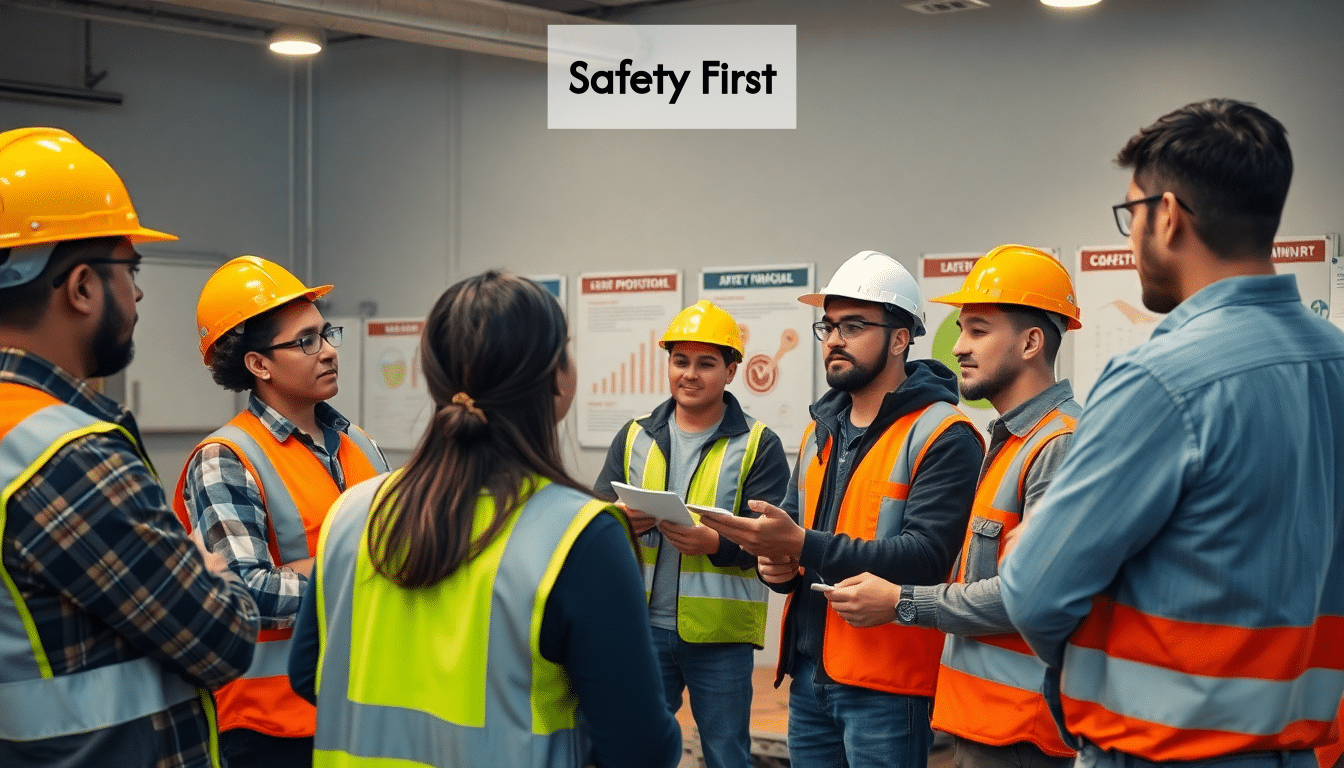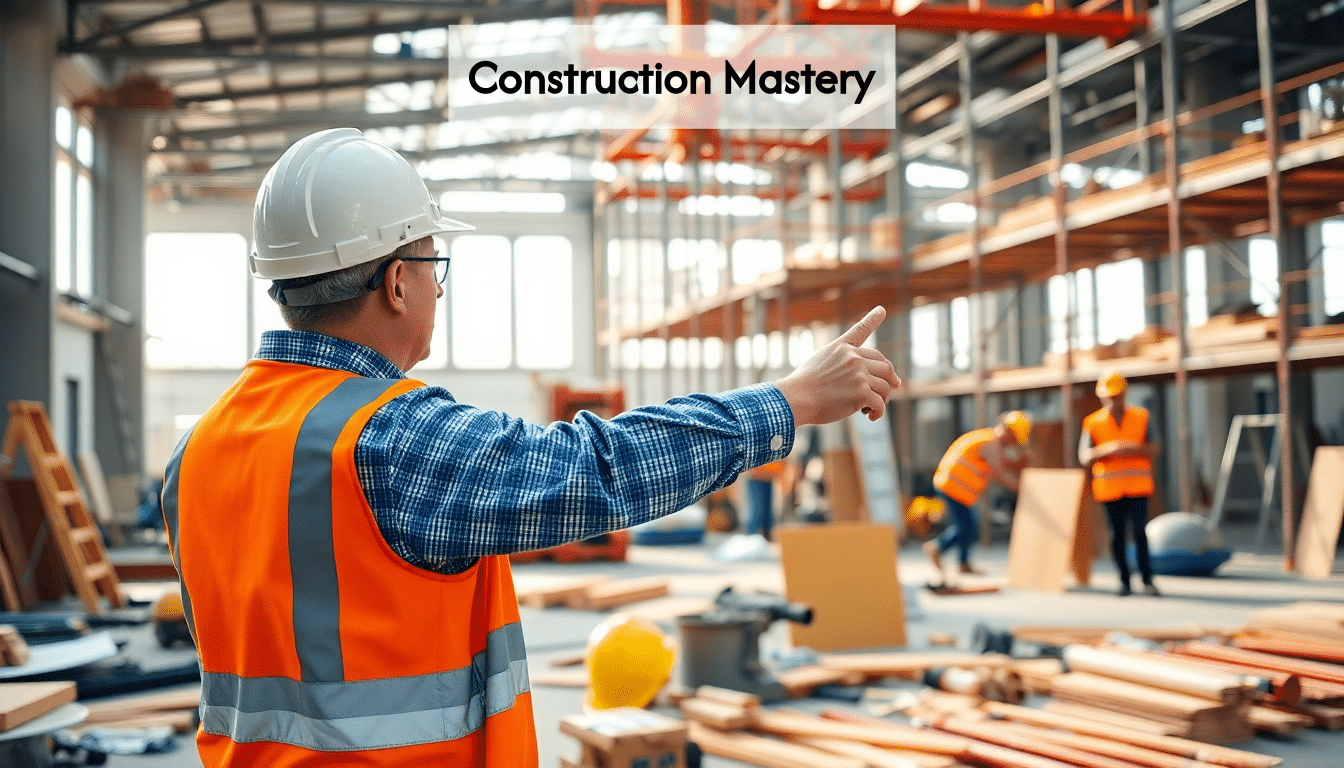Construction supervision is the backbone of any successful building project. With construction spending projected to reach $1.6 trillion in the U.S. by 2024, the demand for skilled supervisors has never been higher. But here’s the kicker—many believe that technical skills alone will make a great supervisor. The truth is, it’s the blend of leadership, communication, and problem-solving that sets the most effective supervisors apart. Understanding this balance can mean the difference between a project that stays on schedule and one that spirals out of control.
Key Responsibilities of a Construction Supervisor
Construction supervisors serve as the linchpin between project management and on-site execution. Their diverse responsibilities ensure projects progress safely, efficiently, and according to specifications.

Project Oversight and Coordination
- Daily operations management – Supervising workers, coordinating deliveries, and scheduling equipment usage to maintain productivity
- Quality control enforcement – Conducting regular inspections to verify work meets project specifications and building codes
- Timeline management – Monitoring progress against schedules and adjusting resources to prevent delays
https://www.youtube.com/embed/uoNkHLjtrvQ
Team Leadership
A construction supervisor typically oversees 10-15 workers directly, according to industry data. This leadership role includes:
- Training new workers on safety protocols and job-specific procedures
- Assigning tasks based on team members’ skills and project requirements
- Resolving conflicts and addressing performance issues
- Creating an environment that balances productivity with safety
Documentation and Reporting
Construction supervisors maintain crucial project records including:
- Daily progress reports documenting completed work
- Materials usage tracking and inventory management
- Safety incident documentation and corrective action plans
- Regulatory compliance verification
Problem Resolution
Effective construction supervisors excel at identifying and addressing challenges before they impact project timelines or budgets. This involves:
- Analyzing construction drawings to anticipate potential issues
- Developing contingency plans for weather delays or material shortages
- Collaborating with architects, engineers, and clients to resolve design conflicts
The role demands technical knowledge, leadership abilities, and strong communication skills to coordinate effectively with all stakeholders while maintaining focus on project objectives.
Key Takeaways
| Takeaway | Explanation |
|---|---|
| Project Oversight is Critical | Supervisors must manage daily operations, enforce quality control, and monitor timelines to ensure project success. |
| Leadership Skills are Essential | Directly overseeing a team, construction supervisors must train workers, assign tasks, and resolve conflicts effectively. |
| Documentation is Vital | Keeping detailed records of progress, materials, and safety incidents is crucial for compliance and project accountability. |
| Proactive Problem Resolution | Anticipating and addressing issues collaboratively with stakeholders can prevent project delays and budget overruns. |
Training and Certification for Construction Supervisors
Construction supervisors need specific training and credentials to effectively manage complex building projects. The right certifications not only validate expertise but also enhance career advancement opportunities.
Essential Certifications
The most valuable certifications for construction supervisors include:
- OSHA Safety Certifications – These credentials, ranging from $50-$500+, demonstrate competency in workplace safety protocols and regulatory compliance. Training typically requires 8-40 hours of coursework according to industry research.
- Certified Construction Manager (CCM) – This prestigious certification validates advanced project management capabilities and comprehensive construction knowledge.
- Construction Health and Safety Technician (CHST) – Focused on preventing workplace injuries and maintaining site safety, this certification requires three years of construction experience with at least 35% dedicated to safety functions.

Educational Pathways
Construction supervisors typically develop their expertise through:
- Formal education – Associate or bachelor’s degrees in construction management, civil engineering, or related fields
- Apprenticeship programs – Structured on-the-job training combined with classroom instruction
- Industry-specific training – Specialized courses in areas like scheduling, cost control, and building codes
Technology Proficiency
Modern construction supervisors must be proficient with digital tools including:
| Technology Type | Applications | Benefits |
|---|---|---|
| Project Management Software | Procore, Buildertrend | Streamlined scheduling and resource allocation |
| BIM (Building Information Modeling) | Revit, AutoCAD | Enhanced visualization and conflict detection |
| Documentation Systems | PlanGrid, Fieldwire | Improved record-keeping and communication |
The most successful construction supervisors combine technical knowledge with continuous learning. As building technologies and regulations evolve, staying current through regular certification renewal and additional training becomes essential for career longevity and advancement in the construction industry.
Team Management and Safety Practices
Effective construction supervisors balance productivity goals with team wellbeing and safety compliance. This dual focus creates both a high-performing workforce and a secure work environment.
Creating Psychological Safety
Construction sites present physical hazards, but psychological safety is equally crucial for team performance. Research shows that teams with high psychological safety are more innovative and productive. This environment includes:
- Open communication channels where workers feel comfortable reporting safety concerns without fear of retaliation
- Mistake tolerance that treats errors as learning opportunities rather than reasons for punishment
- Regular feedback sessions that acknowledge good practices while addressing improvement areas
A construction supervisor who implements these practices can reduce workplace incidents by up to 48%, according to industry case studies.
Safety Protocol Implementation
Beyond creating the right atmosphere, construction supervisors must establish and enforce specific safety practices:
- Conducting daily safety briefings before work begins
- Ensuring proper use of personal protective equipment (PPE)
- Maintaining equipment inspection schedules
- Documenting and addressing potential hazards
- Performing regular safety audits and drills
Conflict Resolution
Construction supervisors frequently navigate tensions between team members, subcontractors, and project stakeholders. Effective conflict management strategies include:
- Addressing issues promptly before they escalate
- Focusing discussions on project requirements rather than personalities
- Documenting agreements to prevent future misunderstandings
- Maintaining impartiality when mediating disputes
Team Development
Beyond daily management, construction supervisors play a crucial role in developing team capabilities through:
- Cross-training workers to increase flexibility
- Identifying and nurturing leadership potential within the crew
- Recognizing exceptional performance to reinforce quality standards
- Creating advancement pathways for skilled workers
The most successful construction supervisors establish what organizational psychologists call a
Frequently Asked Questions
What are the main responsibilities of a construction supervisor?
Construction supervisors are responsible for project oversight, team leadership, documentation and reporting, and problem resolution to ensure projects run safely and efficiently.
What certifications are important for construction supervisors?
Key certifications include OSHA Safety Certifications, Certified Construction Manager (CCM), and Construction Health and Safety Technician (CHST), which validate expertise in safety protocols and project management.
How can a construction supervisor improve team safety on-site?
To enhance safety, supervisors can create psychological safety through open communication, conduct daily safety briefings, enforce PPE usage, and perform regular safety audits and drills.
What skills are essential for a successful construction supervisor?
Successful construction supervisors need a blend of leadership, communication, problem-solving abilities, and technical knowledge specific to construction practices and safety regulations.
Unlock Your Construction Leadership Potential with Amundson Group
Navigating the complexities of construction supervision can feel overwhelming, especially when balancing project oversight, team leadership, and problem resolution. Are you looking to elevate your career by connecting with top firms that value these essential skills? At Amundson Group, we specialize in bridging the gap between talented professionals and the construction opportunities that need your expertise.
!
Our vast network leverages strategic partnerships within heavy civil, commercial, data center, and more, ensuring that we connect you with positions that not only match your skills but also align with your passion for project success! Don’t let another potential opportunity pass you by. Take the next step in your career today by visiting Amundson Group. Your future as an empowered construction supervisor awaits!






